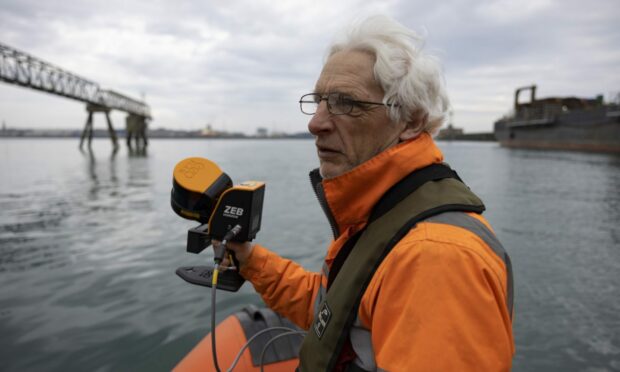Peterhead Port will be central to the Acorn Project, the carbon capture and storage (CCUS) scheme based at nearby St Fergus.
-
Some Press and Journal online content is funded by outside parties. The revenue from this helps to sustain our independent news gathering. You will always know if you are reading paid-for material as it will be clearly labelled as “Partnership” on the site and on social media channels.
This can take two different forms.
“Presented by”
This means the content has been paid for and produced by the named advertiser.
“In partnership with”
This means the content has been paid for and approved by the named advertiser but written and edited by our own commercial content team.
Peterhead Port Authority and Storegga, the company behind Acorn, commissioned a survey of the former tanker jetty at the south side of the port, with a view to investing in its upgrade to handle bulk carbon dioxide imports from industrialised regions across the UK and Europe.
These imports would be at the heart of the port’s role in the net zero transition, which the North East Scotland Green Freeport partners hope will be accelerated via a successful bid.
The carbon will ultimately be pumped to and stored in depleted North Sea gas fields.
Acorn, part of the Scottish Cluster, secured reserve project status in 2021 when the UK Government selected CCUS projects for a share in £1 billion of funding.
The transition to net zero
Linked to this is a scheme to capture carbon at Peterhead Power Station.
PPA chief executive Simon Brebner is adamant that without these major initiatives not only Scotland but the UK as a whole cannot achieve its net zero goals.
“It is critical that this region is substantially supported through Green Freeport status to drive forward the just transition to net zero,” he said.
“As well as helping the country achieve its climate targets, these projects will provide substantial new employment in what is a relatively deprived area.”
In addition to carbon capture, Green Freeport status could help to transform the fish processing sector, especially through the introduction of new technology, to match the heavy investment in whitefish and pelagic fleets.
And offshore wind could be supported with the deployment of empty land banks near Boddam which would suit manufacturers for the assembly of turbine blades prior to their dispatch to the North Sea at the port itself.
“We don’t own the land but we work closely with partners who do,” said Mr Brebner. “That potentially could help streamline a lot of the process involved in importing and exporting.
“Tax sites would be a major benefit to the users of that, potentially also at St Fergus as well. I think we’ve got a very valuable proposition across the different collaborative organisations.”
Bid for Green Freeport status creates jobs
Up to 32,000 high-quality jobs will be created, and gross value added (GVA) will be uplifted by £8.5 billion in the next 10 years as a result of investment, innovation, regional regeneration and opportunities opened up under plans to transform the region into the net zero capital of Europe.
North East Scotland Green Freeport will comprise a special economic zone within which a number of levers and tax incentives will be available to attract new investment and support expansion of existing businesses to invest, innovate and develop the skills needed to deliver a wide range of pioneering new projects.
The UK and Scottish governments are due to determine the successful bids for Green Freeport status later this year.
____________________________________________________________
